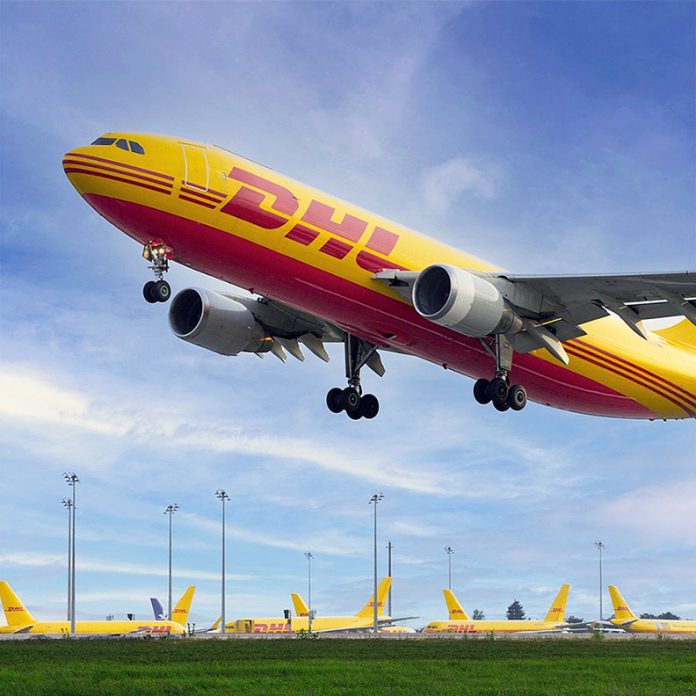-
DHL Group reported a 19.3% year-on-year drop in third-quarter revenues to €19.4 billion amid persistent global economic challenges and normalization of freight transport operations
-
EBIT declined 32.4% to €1.4 billion due to lower freight volumes and rates coupled with the impact of exchange rates and rising fuel costs on operations
-
2023 earnings forecast has been downgraded to €6.2 billion from €6.6 billion considering global economic recovery uncertainties
-
In the first nine months of 2023, consolidated revenue amounted to €4 billion against €70.7 billion year-on-year
The DHL Group reported a 19.3% year-on-year drop in third-quarter revenues to €19.4 billion amid persistent global economic challenges and normalization of freight transport operations after the pandemic-related boom of 2021 and 2022.
Operating profit (EBIT) declined 32.4% to €1.4 billion due to lower freight volumes and rates, coupled with the impact of exchange rates and rising fuel costs on DHL’s operations, the company said in a statement.
Total net profit after non-controlling interests reached €807 million in the third quarter vis-a-vis €1.2 billion year-on-year.
The Group achieved a free cash flow of €1.1 billion in the third quarter, down 40.9%, and €2.5 billion in the first nine months of 2023.
Consolidated revenue amounted to €60.4 billion in the first nine months of 2023 against €70.7 billion year-on-year. Operating profit also developed in line with expectations in the same period at €4.7 billion from €6.5 billion.
Looking ahead, the group downgraded its earnings forecast for 2023 to €6.2 from €6.6 billion, acknowledging the absence of a global economic recovery.
Tobias Meyer, CEO of DHL Group, commented on the current market dynamics, stating, “Global trade has continued to normalize after the pandemic-related boom, and the recovery of the global economy has so far failed to materialize, also against the backdrop of higher interest rates and geopolitical crises. We have planned for different scenarios early on and are, therefore, well on track to achieve our targets for the year.”
Under present market conditions, DHL Group plans to monitor costs closely while investing in global business growth and service quality. The company is prepared for a future global economic recovery, Meyer added.
DHL Group said it maintained a strategic focus on international growth markets, investing in sustainable business activities, low-emission logistics infrastructure, and the digitalization of operational processes. In the third quarter, DHL spent €871 million on gross capital expenditure compared to €958 million in the same period in 2022.
Notable investments include programs in Latin America and Southeast Asia, with the company committing €500 million and €350 million, respectively, by 2028 to strengthen these crucial logistics markets.
RELATED READ: DHL Supply Chain to invest €350M in SEA
The decline in revenue at DHL Express takes into account negative currency effects of €439 million and lower fuel surcharges. Excluding currency effects and fuel surcharges, revenue in the third quarter decreased by 6.4%. As a result of continued weak market conditions, daily Time Definite International shipment volumes decreased by 2.7%. In addition to currency effects, EBIT was impacted by temporary negative effects from the increase in fuel prices.
Revenue and EBIT in the Global Forwarding, Freight division decreased as expected due to lower volumes in both air and ocean freight and normalizing freight rates. Excluding negative currency effects of EUR 307 million, revenue was 40.1% lower than in the same period of the previous year.
Excluding negative currency effects of €191 million, revenue growth at DHL Supply Chain was 6.3%. The growth was supported by new business, contract extensions and growing ecommerce business.
Excluding negative currency effects of €59 million, revenue at DHL eCommerce was 3.2% above the previous year’s figure. EBIT for the division decreased mainly as a result of higher costs and continued investment in network expansion.
The Post & Parcel Germany division experienced a slight revenue growth, driven by higher parcel prices for business customers and increased volumes in domestic and international merchandise-carrying shipments. This was mostly offset by the decline in volumes in the German mail business by 6.1 percent, which was attributable to ongoing structural change in mail and communication business as well as receding advertising mail revenues in the face of inflation and consumer restraint. The decline in EBIT is owed to higher material costs due to inflation and charges on staff costs resulting from high collective wage agreements.





